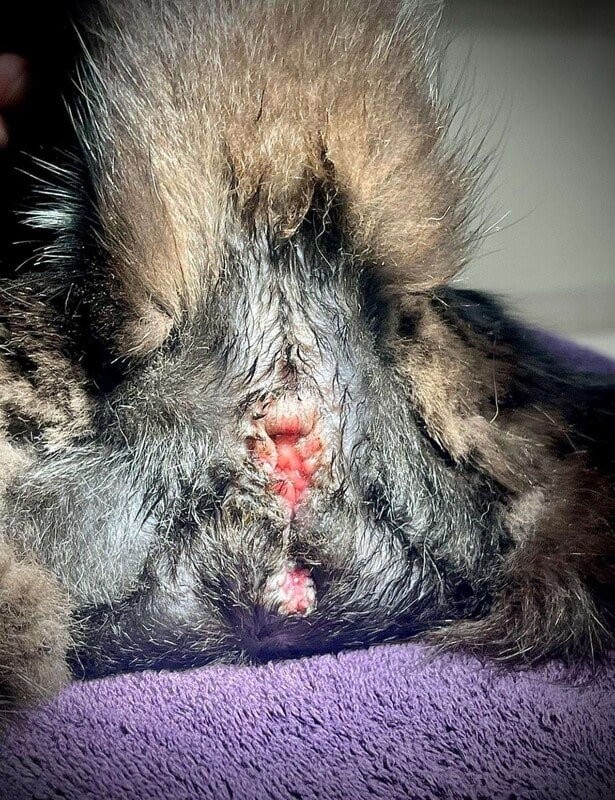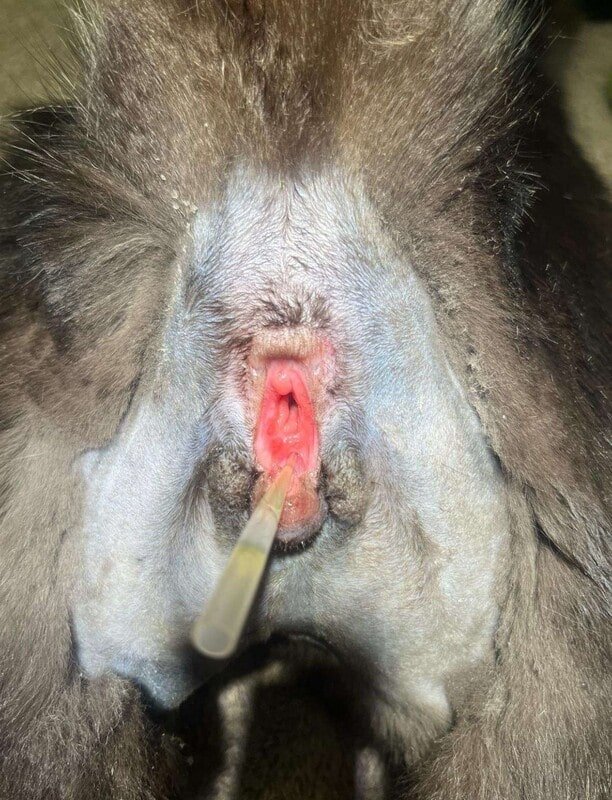At our clinic, we occasionally meet extraordinary patients—and Babybell is one of them. Babybell came to us with a rare and complex congenital condition that required careful diagnosis, specialized surgery, and a lot of love and care.
Presenting Problem
Babybell was born genetically male, with both testicles properly descended. However, there was one very unusual detail—he had no visible male external genitalia. Instead, there was a small pocket in the perineal (under-tail) area that appeared abnormal.
Further examination revealed that this pocket contained both the urethral opening (where urine exits) and the rectum (where stool exits), which were sharing the same space. Unfortunately, this caused fecal contamination of the urinary tract, leading to chronic infection and discomfort.


Initial Treatment
After thorough evaluation and conservative treatment with antibiotics, the first step was to neuter (castrate) Babybell. This helped reduce hormonal influence on the malformed tissues and was an important step in preparing for reconstructive surgery.
Surgery
A few months later, Babybell was assessed by Dr. Behl at Yorkson Creek Veterinary Hospital and decided to proceed for a delicate reconstructive surgery. The goal was to:
- Separate the urethral opening from the rectal area
- Create proper exit points for both urine and stool
- Close off the abnormal perineal pocket
The surgery was a success, and Babybell recovered well under close post-operative care.
Life After Surgery
Babybell has been living a happy, healthy life. There are no signs of urinary issues, and he has adapted beautifully. His playful, affectionate personality has truly shone through now that he’s no longer dealing with infection or discomfort.
Why This Case Matters
Babybell’s case is a rare example of a congenital intersex condition in a cat. It highlights the importance of detailed physical exams and collaborative veterinary care. We’re proud to have been part of Babybell’s journey and grateful to his family for trusting us with his care.
Interested in learning more about complex feline cases or think your pet may need a second opinion?
Contact us today at 604-510-7387—our experienced team is here to help.
